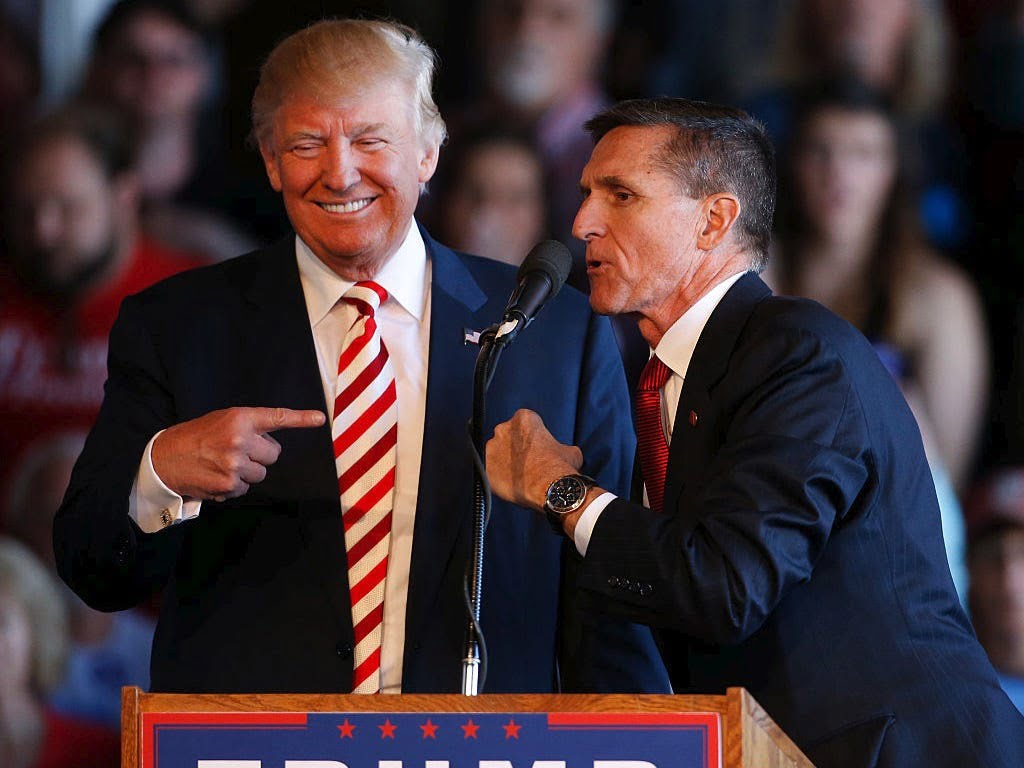
In yet another remarkable development in the US presidential election circus calls have been made this week for President Donald Trump to declare martial law and a new presidential election under the supervision of the US army.
By Arthur Blok
Retired General Michael Flynn, given a presidential pardon for his crime of lying to the FBI, has echoed that call by retweeting the offending item and adding: “Freedom never kneels except for God.”
With a fresh US presidential pardon still warm, the former national security advisor called on Donald Trump to suspend the constitution and declare martial law for the military to run a new election.
Flynn tweeted out a full-page ad that ran in The Washington Times that claimed the extraordinary executive actions were necessary to avoid the alternative of an imminent "shooting civil war".
The 1,500-word manifesto invokes Abraham Lincoln's extraordinary use of presidential authority to suspend habeas corpus as it compares the more widely-known civil war with Antifa and Black Lives Matter attacking major cities with their anti-American agenda.
Petition
On Tuesday Flynn shared a petition on Twitter which called on President Donald Trump to temporarily suspend the constitution and declare Martial Law to enact a re-vote of the 2020 election.
"The petition, published Tuesday by the Ohio-based non-profit group We The People Convention, said there was “no peaceful way left to preserve our Union” following President-elect Joe Biden’s electoral victory and urged Trump to exercise his “extraordinary authority” to avert a second civil war," the Daily Caller reports.
Martial law
Throughout 2020, America has faced a global pandemic, civil unrest after the death of George Floyd and a contentious election. As a result, an influx of fear about the possibility of the invocation of martial law or unchecked military intervention is circulating around the internet among scholars and civilians alike.
In short, martial law can be imposed when civil rule fails, temporarily being replaced with military authority in a time of crisis. Though rare, there have been a number of notable U.S. cases where martial law came into play, including in times of war, natural disaster and civic dispute — of which there has been no shortage in 2020.
While no precise definition of martial law exists, a precedent for it exists wherein, “certain civil liberties may be suspended, such as the right to be free from unreasonable searches and seizures, freedom of association, and freedom of movement. And the writ of habeas corpus [the right to a trial before imprisonment] may be suspended."
Martial law may be declared by both the president and by Congress. State officials may also declare martial law, according to the Brennan Center for Justice, however, “their actions under the declaration must abide by the U.S. Constitution and are subject to review in federal court.”
“Notorious examples include Franklin D. Roosevelt’s internment of U.S. citizens and residents of Japanese descent during World War II and George W. Bush’s programs of warrant-less wiretapping and torture after the 9/11 terrorist attacks,” the Atlantic reported. “Abraham Lincoln conceded that his unilateral suspension of habeas corpus during the Civil War was constitutionally questionable, but defended it as necessary to preserve the Union.”
Throughout the course of U.S. history, federal and state officials have declared martial law at least 68 times.
With agencies







It’s “The calm before the storm”,
That’s what President Trump said
in a recent photo shoot
with several very intelligent military officers
in the room.